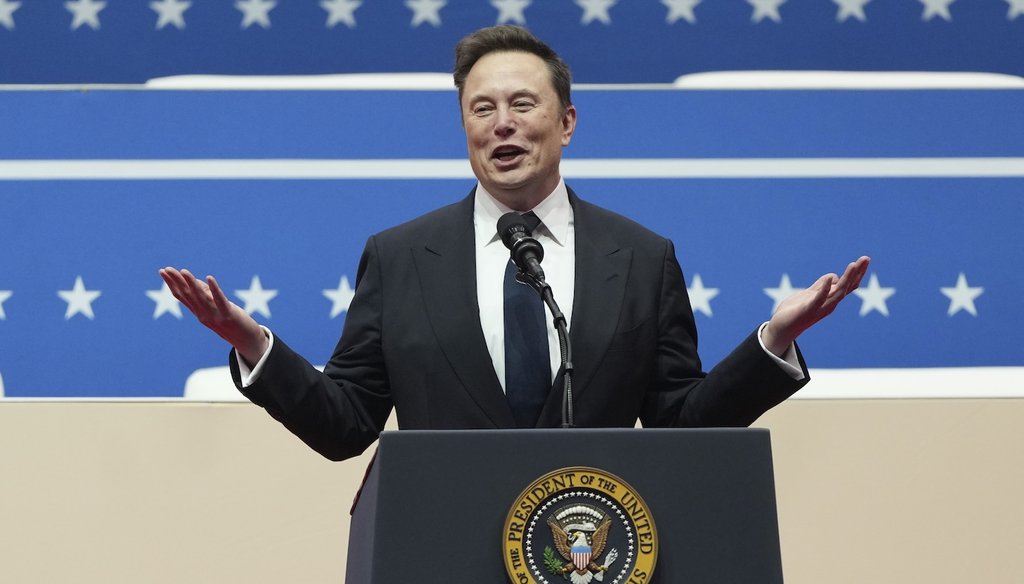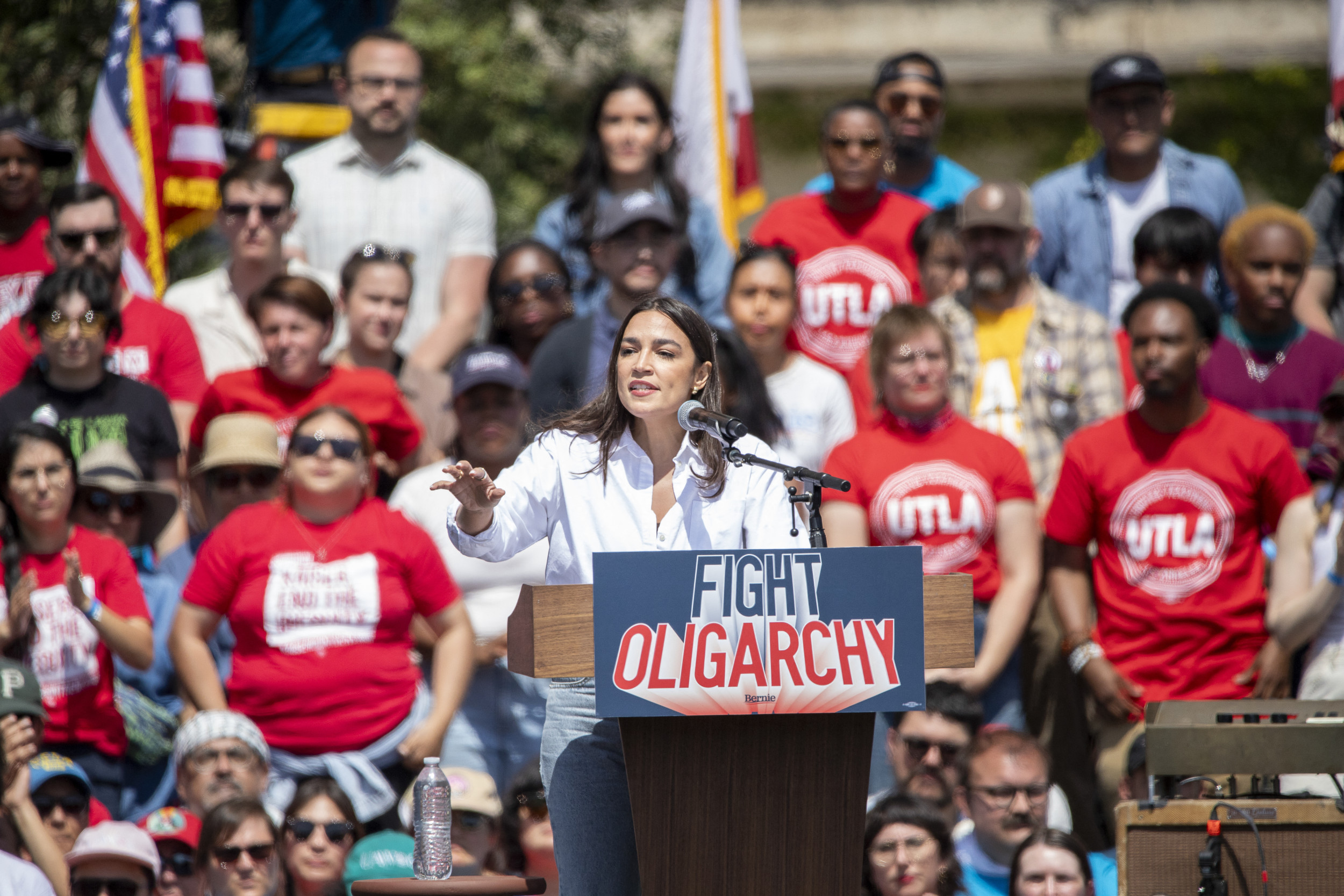More registered voters believe that progressive New York Representative Alexandria Ocasio-Cortez better reflects the values of the Democratic Party than former Vice President Kamala Harris, according to a new poll.
Why It Matters
Democrats have faced intense scrutiny over who will be the party’s standard-bearer come 2028 after their losses during the 2024 election cycle. The party has been plagued with infighting and finger pointing following Harris’ loss to President Donald Trump.
A number of polls have shown Harris, the 2024 presidential nominee, at or near the top of most voters’ minds. Other names besides Ocasio-Cortez that have drawn significant interest from include California Governor Gavin Newsom, Pennsylvania Governor Josh Shapiro, and former U.S. Transportation Secretary Pete Buttigieg.
SAM GHAZI/Middle East Images/AFP via Getty Images
What To Know
A survey published Thursday by Quantus Insights, which conducts research and modeling for election forecasting, shows Ocasio-Cortez leading Harris when the 1,000 survey respondents were asked who best reflects the Democratic Party’s values.
Ocasio-Cortez received 19 percent of respondents’ support, compared to 17 percent for Harris. They were followed by New Jersey Senator Cory Booker (12 percent), Vermont Independent Senator Bernie Sanders (10 percent), House Minority Leader Hakeem Jeffries (9 percent), and former President Barack Obama (7 percent).
However, when asked about the preferred 2028 nominee, 30 percent of respondents who identified as Democrats and Democratic-leaning independents selected Harris. Ocasio-Cortez, Buttigieg and Booker each garnered support in the 13–14 percent range.
“The absence of a clear leader—reflected in the 20% who either selected ‘none’ or were unsure—highlights a perceived leadership vacuum within the Democratic Party,” Quantus notes in its assessment. “While AOC and Kamala Harris lead the field, their narrow margins suggest a fragmented coalition.
“This lack of consensus may complicate efforts to project a unified message ahead of 2026 and could weaken voter confidence in the party’s strategic direction in the House.”
Jason Corley, co-founder and lead pollster at Quantus Insights, told Newsweek on Friday that the data tells a story “that’s less about collapse” and more about a postelection leadership identity shift that is often customary after a major electoral loss.
He compared what the Democrats are currently enduring to the GOP after the 2012 election, and the dramatic shift in Republican ideology from the days of President George W. Bush and even Mitt Romney, to Trump.
“Unless Democrats coalesce around a clear message and messenger—particularly one who can speak to economic concerns beyond progressive litmus tests—they risk entering the midterms with a fragmented strategy,” Corley said. “With [former President Joe] Biden off the ballot and his legacy less remembered by then, there’s opportunity to reset—but that vacuum also exposes the party’s structural fragility.”
Overall, 65 percent of respondents found the Democratic Party “very favorable” (25 percent) or “somewhat favorable” (40 percent). About 22 percent find the party “very unfavorable.”
Another question asked about the party’s political and ideological stance, with about 46 percent of respondents saying it’s balanced.
Another 32 percent said that it is too progressive and/or too far left. Ocasio-Cortez and Sanders have been top names in that farther-left coalition over the years, including as part of their current Fighting Oligarchy nationwide tour of red and blue states.
The future of the party remains in flux. The survey asked Democratic and Democrat-leaning independents which direction the party needs to go, garnering an exact 50-50 split between moving toward the center or moving farther left.
“The immediate challenge for Democrats is messaging discipline,” Corley said. “The party is not just ideologically divided, it’s strategically split.”
What People Are Saying
Patricia Crouse, political scientist in residence at the University of New Haven, to Newsweek: “I think people see her as the face of the Democratic Party right now because she seems to be the only one (along with Sanders) willing to stand up for the party and stand against Trump,” Crouse said. “But many within the party, both members and voters, view her as too progressive or even extreme left.”
Denny Salas, former Washington, D.C., consultant, to Newsweek: “There’s always room for loudmouths with no serious plans to improve the everyday lives of working-class Americans. AOC is currently running the same exact and tired playbook of ‘Trump-Hate’ some Democrats have been running since 2016. It may win an election here and there, but it is unserious.”
What Happens Next
Harris’ future political endeavors, as that of the other top Democrats mentioned in 2028 polls, remain unknown. Some have speculated that instead of run for president she may run for governor of California, to potentially replace a term-limited Newsom.














